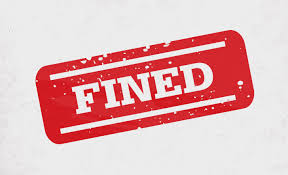
The Federal Aviation Administration (FAA) has proposed civil penalties exceeding $50,000 for alleged Hazardous Materials Violations involving persons and companies that have offered lithium batteries in checked baggage when in fact it should have been shipped as cargo. These violations are taken very seriously with stiff penalties because of the risk posed particularly aboard passenger aircraft. In one particular instance, the FAA alleged that the company offered 142 lithium metal batteries to a passenger airline for transportation by air from Dallas-Fort Worth International Airport to San Francisco, CA, in the checked baggage of a company employee. Lithium metal batteries are prohibited as air cargo on passenger aircraft and are also prohibited in checked baggage. Airline passengers may only carry uninstalled, spare lithium batteries in carry-on baggage when the batteries are for personal use in portable electronic devices. As most reader know, ICAO banned lithium ion batteries as cargo on passenger aircraft in 2016 although the US DOT has yet to publish a final rule mirroring the ICAO ban and the US DOT issued a final rule mirroring this requirement earlier this year consistent with a mandate in the FAA Reauthorization Act.
Airline baggage is not an authorized method for companies to move lithium batteries or other hazardous materials. The rules for carrying lithium batteries and lithium battery- powered devices as an airline passenger are contained in the US Hazardous Materials Regulations §175.10. The DOT also provides information on the Pipeline and Hazardous Materials Safety Administration’s Safe Travel web page: https://www.phmsa.dot.gov/safetravel/batteries and on the FAA’s PackSafe page: https://www.faa.gov/about/initiatives/hazmat_safety/ .
Most companies don’t think about training administrative, sales, technical staff and executives that generally don’t handle or ship hazardous materials and many don’t realize that lithium batteries are hazardous materials. This is why companies need to develop guidance for these employees to prevent embarrassing incidents, penalty actions and disruption of their businesses. HSC can assist companies in developing compliance strategies and compliance guidance documents that are simple, to the point and informative. Prior planning can prevent uncomfortable run-ins with the FAA and other regulatory authorities.


